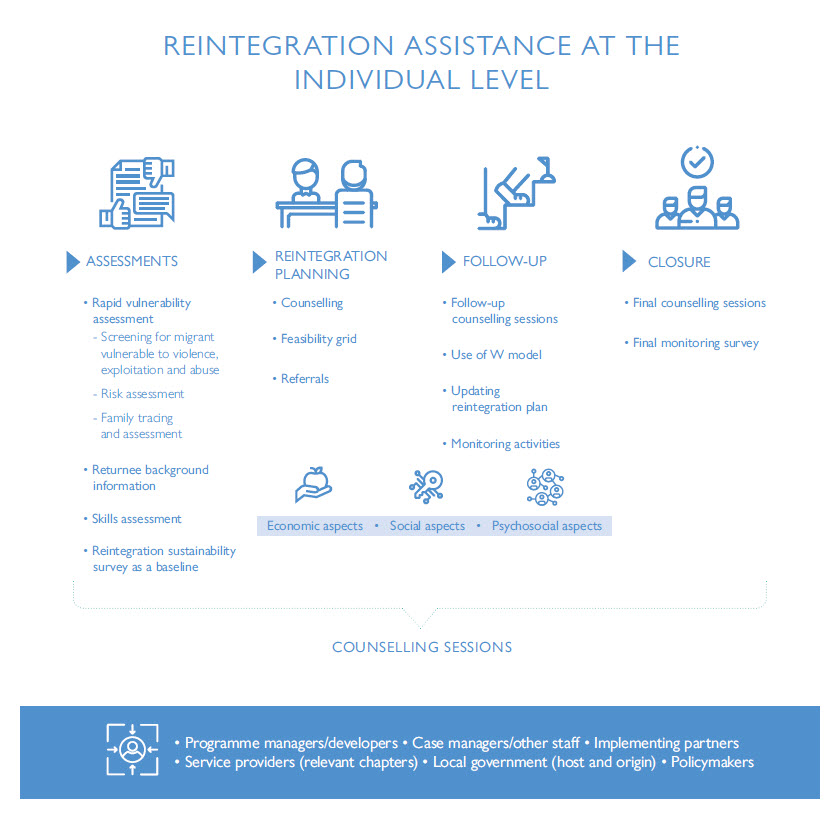Key Messages
Introduction

The type and content of reintegration support should be based on returnee needs. Providing information and counselling both pre-return and post-arrival helps case managers tailor assistance to the specific situation of each returnee. This type of tailored approach is particularly important when there are specific vulnerabilities arising from family composition, sex or gender, age, medical conditions or mental distress experienced during the migration process because of abuse, exploitation or violence.
This Module contains information for assistance at the individual level, beginning with the important role that case managers play through counselling and referrals and in assessing the returnee’s needs and skills, through to developing a reintegration assistance plan. Three sections highlight best practices and interventions supporting returnees in the economic, social and psychosocial dimensions of reintegration at the individual level.
Factors affecting reintegration at the individual level
At the individual level, various factors impact successful reintegration. These include personal characteristics as well as factors related to the overall migration experience, such as:
Table 2.1: Individual-level factors that can affect reintegration
|
➔ Age ➔ Sex ➔ Gender ➔ Ethnic and cultural identity ➔ Religious Identity ➔ Health and well-being ➔ Skillset(s) and knowledge ➔ Family status ➔ (Dis)ability |
➔ Sexual orientation ➔ Social networks ➔ Motivation(s) ➔ Self-Identity ➔ Personal security ➔ Financial situation ➔ Psychological characteristics (emotional, cognitive, behavioural) ➔ Time spent abroad |
The nature of the returnee’s migration journey and the circumstances of return are as important as any other factors. These circumstances can include: the length of the migrant’s absence; conditions in the host country; exposure to diseases or other public or mental health concerns; delayed transitions such as being held in detention before return; conditions of return or the level of return preparedness; and resources available or access to information. Individual vulnerabilities to consider include whether returnees have health needs, whether they are victims of trafficking, violence, exploitation or abuse, or whether they are unaccompanied or separated children. Such vulnerabilities require specific support in certain areas (for example, psychosocial counselling to address distressing experiences) at the start of the reintegration process and empower returnees to reach their full potential.16
16 For more information on migrants in situations of vulnerability, please refer to IOM's Handbook on Protection and Assistance to Migrants Vulnerable to Violence, Exploitation and Abuse.